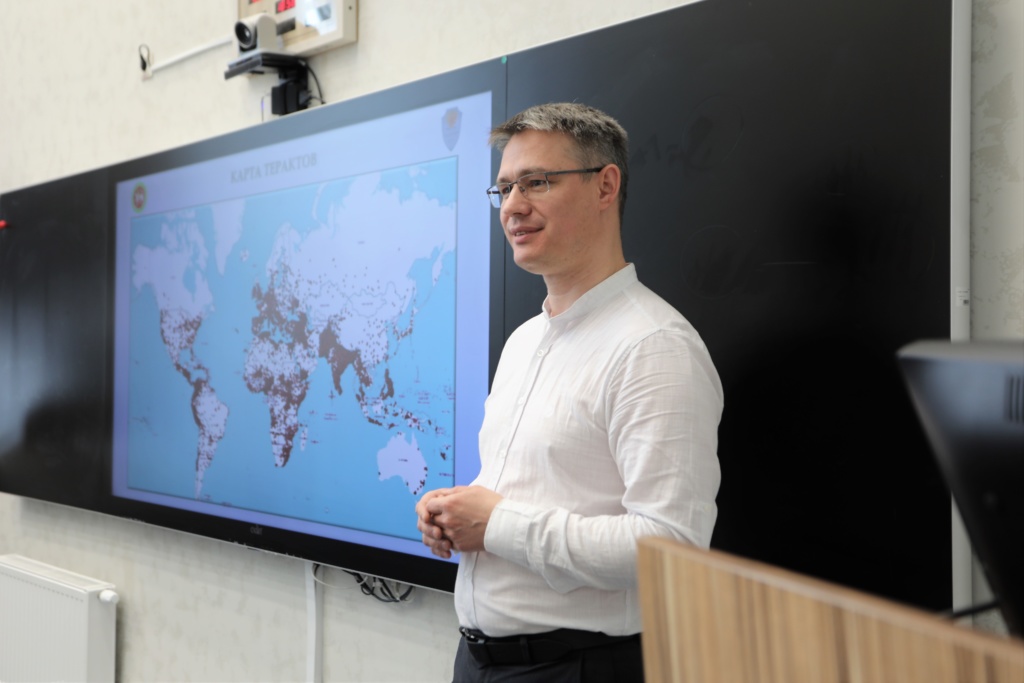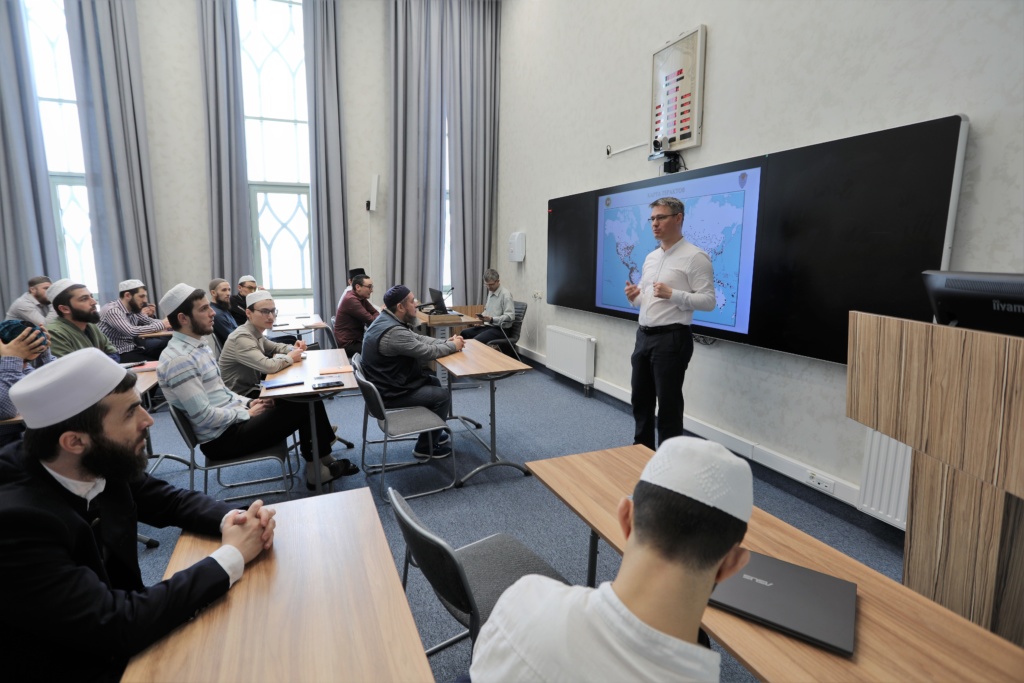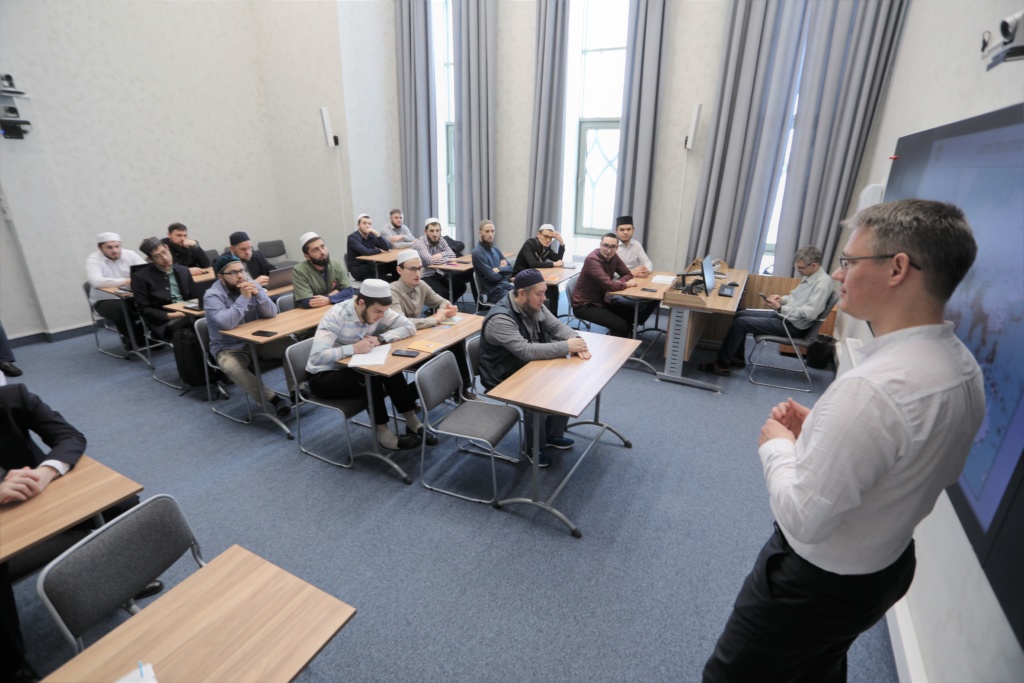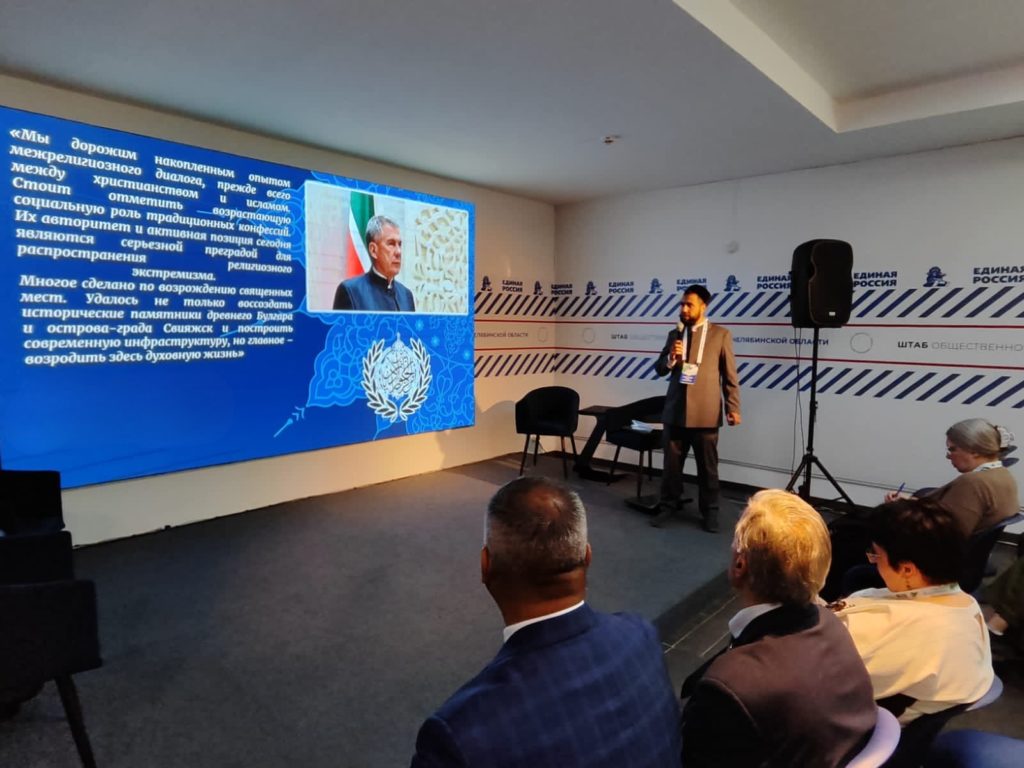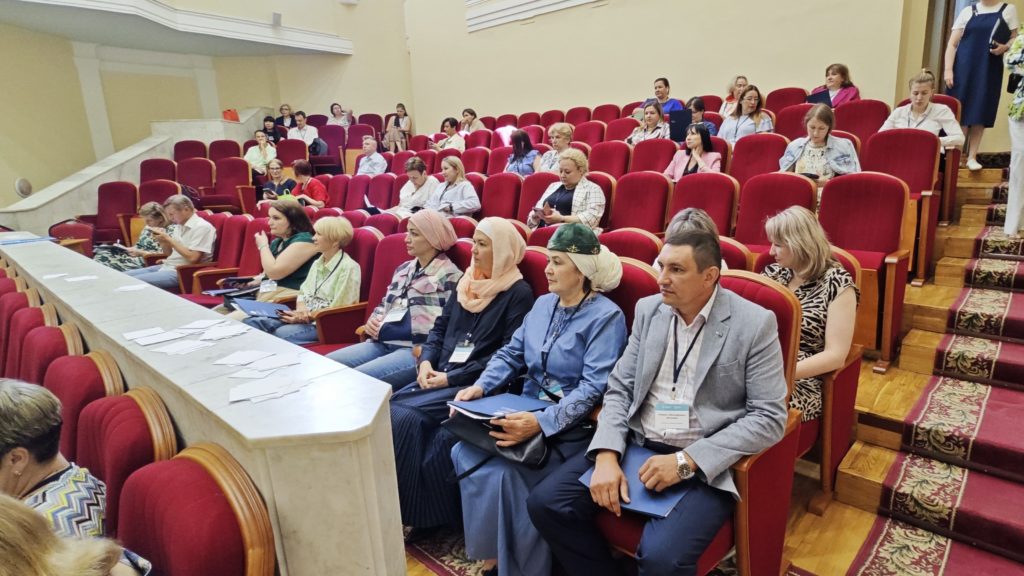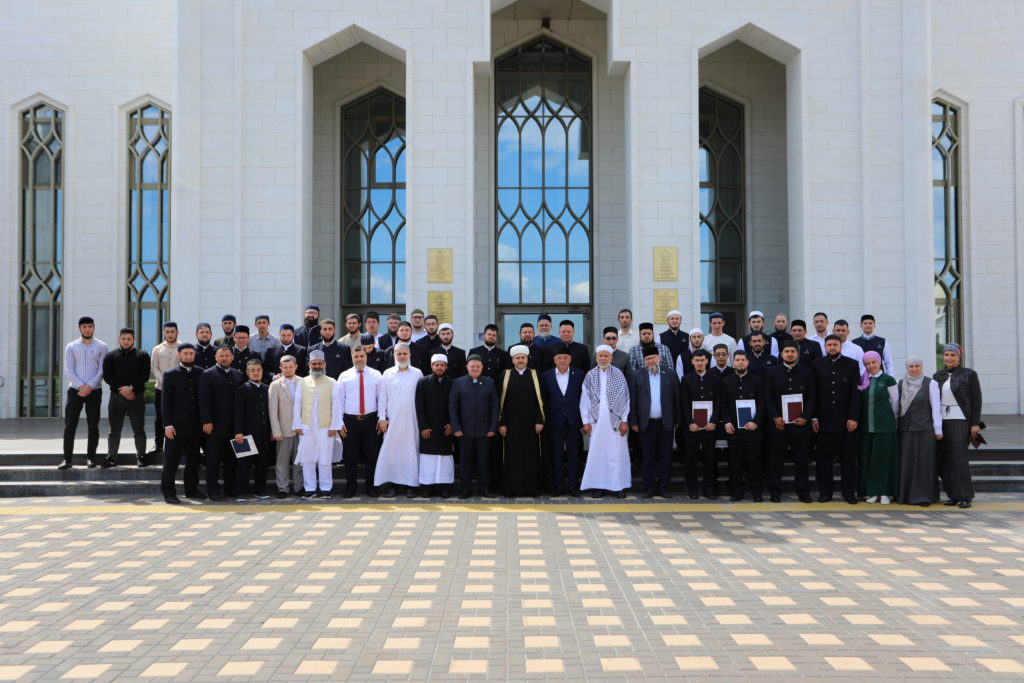On March 2, master’s and doctoral students took part in a roundtable discussion on “Symptoms of degeneration of interfaith relations, effective methods of diagnosis and suppression in the early stages. The lecturer was Ildar Galiev, Advisor to the Rector of the Bolgar Islamic Academy.
Together with the students of the Academy discussed the reasons why people join radical organizations, accept the ideas of violence, what they experience, which needs they satisfy.
“You have to understand that no one comes up and says, ‘Come with me to engage in terrorist activities.’ The recruitment process takes place in confidential conversations. Therefore, our task with is to make sense of the individual fragments of the complex mosaic, to identify the individual prerequisites, in order to then connect them and make a complete, comprehensive picture of the problem. We can figure out as a result of what events a person may have a destructive picture of the world, “– said Galiev.
At the round table with the expert participants discussed various factors contributing to the entry into destructive cults and the adoption of a conscious choice of violence. As the expert noted, there are different motives in different situations and in different age groups. Depressed psycho-emotional state, which a person experiences during a crisis, very often influences the reduction of critical thinking and vulnerability to accept radical ideas.
During his lecture, the lecturer noted that since 2010 there has been a sharp increase in terrorist activity in the world. One of the reasons for this upsurge is the change in the technology of information dissemination, the growth of Internet activity.
“The increase in the volume and speed of obtaining information, its processing simultaneously with the number of sources of information and reducing the degree of their reliability plays its role in increasing the anxiety of society and the desire of some to take available measures to simplify reality, make it more understandable, black and white. What does it take to sow conflict in society, to divide the state? Divide. Take a small percentage of negative information and increase it at times through the media and social networks, “– explained the Rector adviser.
During the round table, the speaker also explained how life crises, especially social deformation at an early age, can affect the formation of worldview and later worldview, and how such a state can reduce the immunity to destructive ideas in a single person.
“The question of ideology in prevention takes second place, first we need to pay attention to the psychological and mental state of the person: what needs he ” satisfy “, how his inner state of hopelessness can be used to push to violence as the only possible way to solve problems. The format and direction of preventive prevention work with those who have already become involved in terrorist activity is also important. This is due to the fact that the internal problems limit their ability to communicate, the ability to objectively and adequately assess reality, which is expressed in a binary worldview and rigid confrontation,” – said Ildar Galiev.
At the end of the lecture, the Rector adviser of the Bolgar Academy emphasized that working with the internal state is proactive and more important, because it allows you to lead the person to the thoughts that would allow him to embark on the path of deradicalization.
“It is useless to talk about beliefs, doctrinal moments, until the person comes to a balanced psychological state. These points are extremely important in terms of religious preparation and the timeliness of bringing theological argumentation into the deradicalization process, so that it sounds in time and in the right key. It is about that at first to help the person to go out of a crisis condition, to feel balance, and then unobtrusively to promote that the person felt these moments, and has come to such conclusions, “– summed up the speaker.
At the end of the meeting, the speaker thanked the audience for their active participation in the discussion and announced the continuation of the meeting in the near future.
